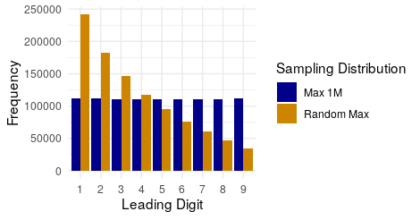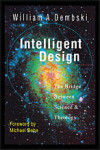Take a list of numbers. Maybe it's your lab's itemized expenses, or the prices from a week's grocery shopping, or a list of values for physical constants. Look at just the leading digit of all those numbers. So if the number is $1.59 then you get a 1, or if it's 3.14 then you get a 3, and so forth. Now count up all the 1s, 2s, 3s, etc. What do you expect you'll find? Are you imagining a roughly equal amount of each of the nine possible digits? If so, you are in good company, because that's a common expectation. But … [Read more...] about Science Corner: One Is The Likeliest Number
chance vs. design
Science Corner: I’ll Be in Scotland Afore Ye
In a lovely bit of metaconvergence, two studies on convergent evolution showed up in the news this week. The first looked at ants in Arizona and whether five distinct populations separately stopped producing queens with wings in favor of wingless ones. The second was more extensive, showing that a wide range of species across phyla all have the same solution at the genetic level for coping with a toxin produced by some plants and toads. Both studies suggest that natural history was not purely random, and "replaying the … [Read more...] about Science Corner: I’ll Be in Scotland Afore Ye
Does Intelligent Design Rule Out Evolution?
In the next series of blog posts we are going to look at Christian questions about evolution. In my last post we saw that two of the Christian views of creation, Young Earth Creationism and Old Earth Creationism, disagree with the scientific account of the mechanism of creation. Because of this we need to ask, is evolution true? Perhaps the strongest recent challenge to evolution has been the Intelligent Design movement. For the rest of this post we are going to look at Intelligent Design and ask if it is a better … [Read more...] about Does Intelligent Design Rule Out Evolution?


